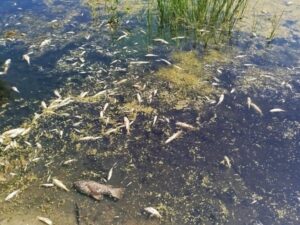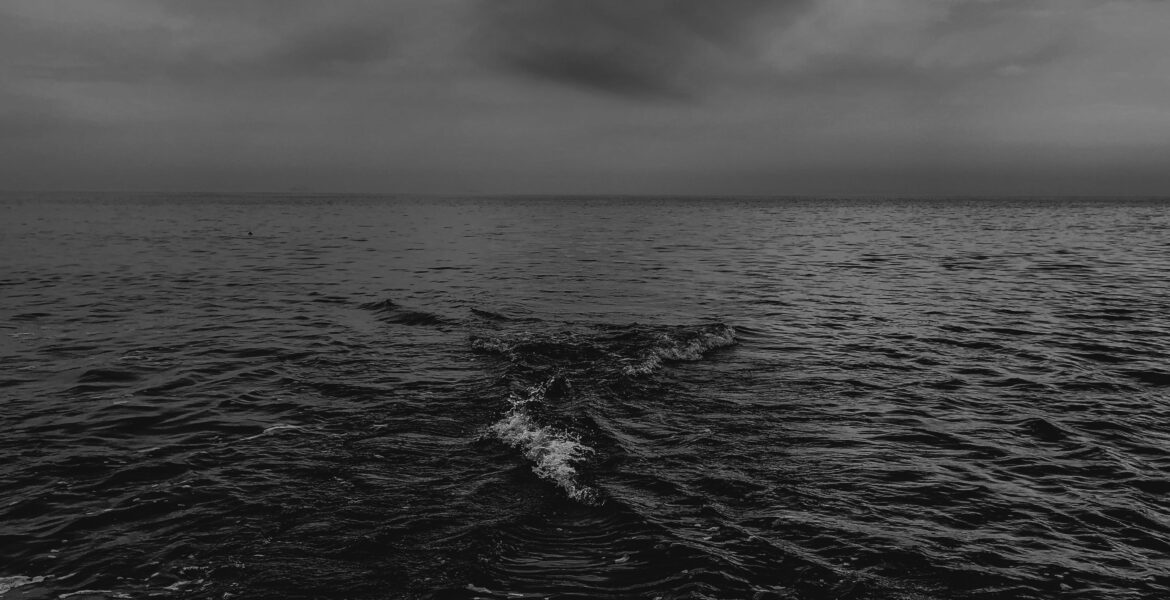Photo by Vasy Cotorobai on Unsplash
For more than two and a half years, since Russia’s invasion of Ukraine, the world has witnessed a new level of destruction caused by the aggression of the Russian military. The extensive environmental crimes committed by Russian forces are not limited to Ukrainian territory; they threaten the environment and well-being of other countries. In August 2024, significant pollution was detected in the Seym River, the largest tributary of the Desna River, which flows into the Dnipro. Russian troops began discharging toxic substances into the river, leading to mass fish deaths and critically low oxygen levels in the water. The pollution has already reached the Desna River and continues to spread into the Dnipro, and thereafter the Black Sea, posing a threat to the entire region’s ecosystem.
The Seym River flows through the Belgorod and Kursk regions of Russia, as well as the Sumy and Chernihiv regions of Ukraine. It is a left tributary of the Desna River, which originates on the Smolensk Upland and flows into the Dnipro near Kyiv. The Dnipro, in turn, flows through a significant portion of Ukraine and empties into the Black Sea. The pollution of the Seym, spreading through the Desna and Dnipro, poses a danger not only to Ukraine but also to countries whose shores are washed by the Black Sea. These regions could suffer from contaminated waters, threatening both ecosystems and the health of people living in these areas.

Since the beginning of its invasion of Ukraine, the Russian Federation has regularly committed acts of ecocide, aiming to make Ukrainian lands uninhabitable. In the territories occupied by Russia, there are 13 national nature parks, 8 nature reserves, and 2 biosphere reserves. As a result of the war, more than 20% of Ukraine’s protected areas have been affected, nearly a third of Ukrainian forests have been damaged, and 600 species of animals have been harmed, with 80 of them on the brink of extinction. Russian troops are destroying one of the oldest biosphere reserves in the world, Askania-Nova, located in the temporarily occupied territory of Kherson Oblast. Dozens of animals have been illegally taken to the Russian Federation and temporarily occupied Crimea.
The destruction of the Kakhovka Hydroelectric Power Station (KHPS) in June 2023 became one of the largest terrorist acts of the 21st century, leading to the flooding of more than 80 towns and villages. This terrorist act by Russia caused environmental damage amounting to approximately 3.5 billion euros. The explosion of the KHPS by Russia was a horrifying and unpunished war crime of ecocide, an environmental weapon of mass destruction that spurred Russia to commit new atrocities, such as attempts to destroy the Dnipro Hydroelectric Power Station, the Dniester Hydroelectric Power Station, and the Kaniv Hydroelectric Power Station.
Ukraine is one of the most mined countries in the world: 144,000 square kilometers, or about 25% of the country’s total area, remain potentially contaminated with Russian mines and unexploded ordnance. As a result of the war, 3 million hectares of Ukrainian forests have been affected, of which 450,000 hectares are mined. 1,200,000 hectares of protected areas are potentially mined and will be cleared last, meaning a loss of biodiversity due to Russian mines. Since the beginning of Russia’s massive military invasion of Ukraine, 523,328 explosive devices and 2,965 kg of explosives, including 3,741 aerial bombs, have been defused.
Several countries and international organizations are actively helping Ukraine in its fight against ecocide and in demining efforts. One of the key partners is the United Nations Development Programme (UNDP), which, with the support of the European Union, as well as the governments of Denmark, Japan, and Sweden, has provided significant amounts of equipment and protective gear for Ukrainian sappers.
Belgium is actively supporting Ukraine in both the military and humanitarian spheres. In 2024, Belgium allocated 2 million euros for humanitarian demining through the United Nations Development Programme (UNDP) and the Food and Agriculture Organization of the United Nations (FAO). In addition, Belgium is part of a demining coalition. Belgian military support includes training Ukrainian soldiers and providing equipment such as mine-clearing ships.
Poland and the Baltic States (Estonia, Latvia, and Lithuania) are actively urging the European Union to coordinate efforts to support demining operations in Ukraine and to allocate necessary funding for these activities. These countries emphasise the importance of ensuring the safe return of civilians to liberated areas of Ukraine, which requires significant efforts to clear the territories of mines and other explosive devices.
European countries continue to actively support Ukraine in combating mine hazards and recovering from the devastating consequences of the war.
The ecocide committed by Russia in Ukraine is a global problem that requires international intervention and cooperation. Ukraine has become the first country in the world to collect evidence of ecocide and conduct investigations into war crimes against the environment, ensuring accountability within the framework of national jurisdiction. In particular, Ukraine is one of the 15 countries in the world where legislation provides for responsibility for ecocide.
It is necessary to hold those responsible for environmental crimes fully accountable and to strengthen international norms and agreements aimed at protecting the environment during armed conflicts. Joint efforts by the global community are essential to protect our shared ecosystem and prevent such crimes in the future.
Only through condemnation, accountability, and cooperation can we stop the destructive actions that threaten our common home the planet Earth.




